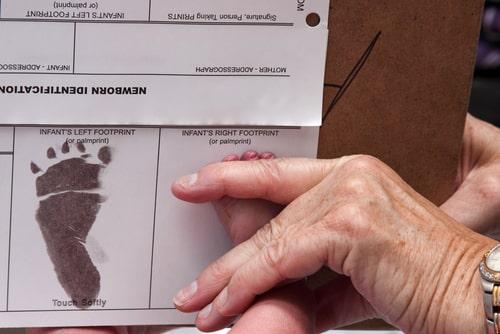Recent Blog Posts
3 Situations in Which a Married Couple May Decide to Get a Legal Separation
 A legal separation does not end a marriage. However, it does allow spouses to make legally binding decisions about child custody, property division, and other issues typically decided on during a divorce. There are several reasons a married couple may choose to seek a legal separation rather than a divorce, including religious beliefs or personal preferences. In some cases, couples may also use legal separation as a way to test whether they want to end their marriage,
A legal separation does not end a marriage. However, it does allow spouses to make legally binding decisions about child custody, property division, and other issues typically decided on during a divorce. There are several reasons a married couple may choose to seek a legal separation rather than a divorce, including religious beliefs or personal preferences. In some cases, couples may also use legal separation as a way to test whether they want to end their marriage,
If your marriage is experiencing turmoil, make sure you understand the advantages and limitations of legal separation before making a decision.
Basics of Legal Separation in Illinois
When a couple gets divorced, they are no longer married in the eyes of the law. This means that they can remarry if they choose to do so. A legal separation does not end your marriage, but it does allow you to create a separation agreement - a document similar to a divorce decree. Your separation agreement may contain determinations regarding:
Preventing Holiday Parenting Time Disputes
 Sharing custody of a child is no easy task. Divorced and unmarried co-parents must contend with many different parenting issues throughout the year. However, the holiday season can be an especially difficult time for families to get along. Children cannot be in two places at once, and parents and extended family may argue about which holiday gatherings children attend. As winter holidays approach, consider the following tips for preventing parenting time disputes.
Sharing custody of a child is no easy task. Divorced and unmarried co-parents must contend with many different parenting issues throughout the year. However, the holiday season can be an especially difficult time for families to get along. Children cannot be in two places at once, and parents and extended family may argue about which holiday gatherings children attend. As winter holidays approach, consider the following tips for preventing parenting time disputes.
Sharing Custody of Your Kids Over the Holidays
There is no way to completely avoid arguments and conflict during a co-parenting relationship. Disagreements and hurt feelings are bound to arise. However, with careful planning and preparation, you may be able to reduce the amount of conflict between you and the other parent.
-
Review your parenting plan - Your parenting plan describes the allocation of parental responsibilities as well as the parenting time schedule. A well-written plan clarifies parenting time on holidays and other special occasions, too. Review your parenting plan before the holidays to avoid any confusion about who gets the children on what days. If you do not have a formal parenting plan, now is the time to sit down with the other parent and create one.
Ending Your Marriage When You and Your Spouse Co-Own a Business
 According to the most recent estimates, there are approximately 5.5 million family businesses currently operating in the United States. Running a family business can be a rewarding experience, but it can also be a challenging one. If you and your spouse co-own a business together and are considering ending your marriage, there are some important things to keep in mind. You will need to plan your divorce carefully to protect your business interests and avoid any potential disputes down the road.
According to the most recent estimates, there are approximately 5.5 million family businesses currently operating in the United States. Running a family business can be a rewarding experience, but it can also be a challenging one. If you and your spouse co-own a business together and are considering ending your marriage, there are some important things to keep in mind. You will need to plan your divorce carefully to protect your business interests and avoid any potential disputes down the road.
Valuing the Business is Often the First Step
If you and your spouse co-own a business, the first thing you need to do is determine how you will value the business for the purpose of property division. This can be a complex process, as businesses are often worth much more than their physical assets. You will need to consider the value of the business's goodwill, any intellectual property it may have, and its current and future earning potential.
My Spouse Destroyed My Property During Divorce. Can I Be Compensated?
 Unfortunately, the end of a marriage relationship can sometimes bring out the worst in people. Some divorcing spouses are so angry that they act out maliciously toward the other spouse. They may threaten their spouse, refuse to cooperate with the divorce process, or destroy their spouse's property.
Unfortunately, the end of a marriage relationship can sometimes bring out the worst in people. Some divorcing spouses are so angry that they act out maliciously toward the other spouse. They may threaten their spouse, refuse to cooperate with the divorce process, or destroy their spouse's property.
If your spouse destroyed, ruined, sold, or otherwise wasted money or property during your divorce, you may be able to seek legal recourse through a "dissipation of assets" claim.
What is Dissipation of Assets?
Illinois law describes dissipation of assets as "any act or series of acts resulting in the depletion of marital property for a non-marital purpose." The law goes on to state that dissipation claims can be filed by either spouse during a divorce proceeding.
Dissipation may refer to reckless or intentional actions. For example, if a spouse has an addiction, money that is spent on drugs or alcohol may be considered dissipation. Buying expensive gifts for an affair partner may also be considered dissipation. Destroying a spouse's property - such as breaking furniture, setting fire to a spouse's clothes, or damaging a car - would also be considered dissipation.
Everything You Need to Know About Depositions During Divorce
 Contested divorce cases often become contentious. Disputes may arise regarding the division of property and debt, the allocation of parental responsibilities and parenting time, spousal maintenance, child support, and other issues. In some situations, depositions are used to gather information and evidence relevant to the disputed issues. If you are getting divorced, it is important for you to understand how and when depositions may be used in your case.
Contested divorce cases often become contentious. Disputes may arise regarding the division of property and debt, the allocation of parental responsibilities and parenting time, spousal maintenance, child support, and other issues. In some situations, depositions are used to gather information and evidence relevant to the disputed issues. If you are getting divorced, it is important for you to understand how and when depositions may be used in your case.
What is a Deposition?
Depositions are interviews that take place under oath. In a divorce deposition, each spouse and his or her respective attorney answer questions pertinent to the divorce case. Most depositions are conducted in person, but some take place over phone or video conferencing.
Guardians Ad Litem in Illinois Child Custody Disputes
 It is not uncommon for disputes regarding parenting time and parental responsibilities to become quite contentious. Emotions are running high and what is best for the child can become lost in the shuffle. The courts understand this and have designed a process to help ensure that children's best interests are always the top priority. Guardians ad litem (GALs) play an important role in these types of cases.
It is not uncommon for disputes regarding parenting time and parental responsibilities to become quite contentious. Emotions are running high and what is best for the child can become lost in the shuffle. The courts understand this and have designed a process to help ensure that children's best interests are always the top priority. Guardians ad litem (GALs) play an important role in these types of cases.
A "Guardian ad Litem" is a person, usually an attorney, who is appointed by the court to represent the best interests of a minor child or children in such disputes. The Guardian ad Litem will investigate both parents’ side of the story and make recommendations to the court as to what they believe is in the child's best interests.
When is a Guardian ad Litem Assigned to a Case?
There are no hard and fast rules as to when a GAL will be assigned to a case. Generally, however, it will happen when the court feels that it would be helpful to have an objective third party involved. This is especially true if there are allegations of abuse or neglect. The court may also appoint a GAL if the parents are unable to come to an agreement on their own regarding child custody issues. Either parent may also request that a GAL is assigned to a child custody dispute or divorce case.
How to Divorce an Abusive Wife
 Although women are statistically more likely to be abuse victims than perpetrators, women are just as capable of inflicting physical, mental, emotional, and psychological abuse as men. Sometimes, a woman in a same-sex relationship abuses her female partner. In other cases, the victim of the abuse is a woman’s boyfriend or husband. Although it is not talked about as frequently as other types of abuse, physical abuse against men is not uncommon. Approximately one out of every seven men has been the victim of intimate partner violence.
Although women are statistically more likely to be abuse victims than perpetrators, women are just as capable of inflicting physical, mental, emotional, and psychological abuse as men. Sometimes, a woman in a same-sex relationship abuses her female partner. In other cases, the victim of the abuse is a woman’s boyfriend or husband. Although it is not talked about as frequently as other types of abuse, physical abuse against men is not uncommon. Approximately one out of every seven men has been the victim of intimate partner violence.
If you are ready to leave your abusive wife and get a divorce, you may understandably feel uncertain about the road ahead. Leaving an abusive spouse is not easy, regardless of the perpetrator’s gender. Read on to learn about your legal options in a situation like this.
Get an Order of Protection
Illinois laws protect all victims of domestic violence. If your wife has physically injured you, threatened you, or harassed you, do not wait for the situation to escalate before taking action. You can request an Emergency Order of Protection at your local county courthouse based on your testimony alone. Your wife’s presence is not required.
How Does Child Support Work if I Have Kids With More than One Person?
 Child support obligations in Illinois are based on both parents’ net incomes. For many payers, or "obligors," child support payments represent a major monthly expense. If someone is already making child support payments to an ex, he or she may worry about how he or she will afford additional child support payments. People in this situation are usually filled with questions. If a parent has children with multiple partners, does he or she pay child support to every partner? How much does he or she pay? These questions can cause great concern for both payers and recipients of child support in Illinois.
Child support obligations in Illinois are based on both parents’ net incomes. For many payers, or "obligors," child support payments represent a major monthly expense. If someone is already making child support payments to an ex, he or she may worry about how he or she will afford additional child support payments. People in this situation are usually filled with questions. If a parent has children with multiple partners, does he or she pay child support to every partner? How much does he or she pay? These questions can cause great concern for both payers and recipients of child support in Illinois.
Read on to learn how Illinois courts handle child support when someone has multiple families and what you can do if you need help establishing, changing, or enforcing a child support order.
How is Child Support Usually Calculated?
As of July 1, 2017, Illinois uses the Income Shares formula to calculate child support. The parent with less parenting time is responsible for paying child support to the parent with more parenting time. The amount he or she pays is determined by a formula that uses both parents’ net incomes. The basic steps of the Income Shares calculation are as follows:
How to Have the Divorce Talk With Your Children
 Divorce is not uncommon, and most children have friends, family members, and schoolmates with divorced parents. However, the pervasiveness of divorce does not cancel out the deep emotional impact of divorce on children. If you are a parent planning to end your marriage soon, you may be unsure of how to broach the subject with your children. The moment your children learn about the divorce is likely a moment they will remember for the rest of their lives. The "divorce talk" should be carefully thought out and planned in advance so that it goes as smoothly as possible.
Divorce is not uncommon, and most children have friends, family members, and schoolmates with divorced parents. However, the pervasiveness of divorce does not cancel out the deep emotional impact of divorce on children. If you are a parent planning to end your marriage soon, you may be unsure of how to broach the subject with your children. The moment your children learn about the divorce is likely a moment they will remember for the rest of their lives. The "divorce talk" should be carefully thought out and planned in advance so that it goes as smoothly as possible.
Telling Your Children About the Divorce
The first step is to make the decision about when and how to tell your children about the impending divorce. You and your spouse should sit down together and decide what you will say and who will say it. It is often best for both parents to be present for the conversation, but if that is not possible or practical, then one parent should take the lead. Do not tell your children about the divorce until you are absolutely certain the marriage is over.
Can a Father Refuse to Sign the Birth Certificate to Get Out of Child Support?
 In Illinois, both parents have a legal responsibility to provide financial support to a child. The parent with the greater amount of parenting time, or time spent with the child, is the parent who receives child support. The parent with less parenting time is responsible for making child support payments. Child support payors or "obligors" may be men or women. However, statistics show that about 85 percent of the people who pay child support are men.
In Illinois, both parents have a legal responsibility to provide financial support to a child. The parent with the greater amount of parenting time, or time spent with the child, is the parent who receives child support. The parent with less parenting time is responsible for making child support payments. Child support payors or "obligors" may be men or women. However, statistics show that about 85 percent of the people who pay child support are men.
Many people have questions about how and when a father is required to pay child support. For example, does a father have to pay child support if he never sees his child? Can a father surrender his parental rights? Can a father avoid paying child support by refusing to sign the birth certificate?
Parentage and Paternity in Illinois
In order to understand how child support works, it is important to first understand the concept of "parentage." Parentage is defined as the legal relationship between a child and his or her parents. Once parentage is established, parents have certain rights and responsibilities towards their child. Parentage involving fathers is called paternity.











